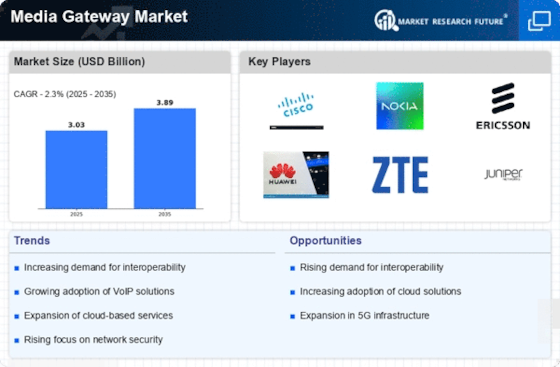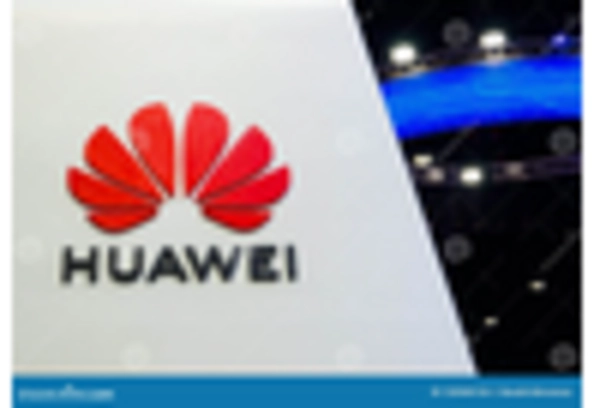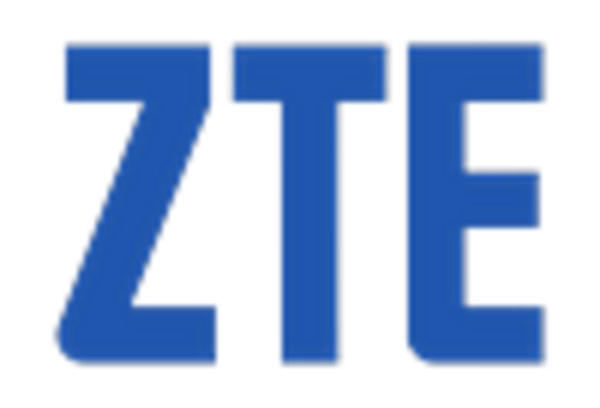Market Share
Media Gateway Market Share Analysis
Trends in the Media Gateway market reflect the changing telecommunications and media ecosystem. Recently, IP-based media gateways have become more popular due to the convergence of voice, data, and video services. The switch from TDM to IP networks is a major commercial trend. Media gateways enable the smooth integration of VoIP, video conferencing, and multimedia streaming when telecommunication networks migrate to IP infrastructures. This trend supports the industry's digital transformation of communication networks. Media Gateway demand for cloud-based solutions has increased. Media gateways that can be implemented in cloud settings are becoming more popular as companies embrace cloud computing. Scalable, flexible, and cost-effective cloud-based media gateways let service providers manage and provide media services. This development is especially significant in UCaaS and OTT content delivery, where cloud-based media gateways improve voice, video, and data transmission over the internet. The integration of fixed and mobile networks via media gateways is another development. Media gateways let communication service providers deliver seamless connection and services across fixed-line and mobile networks. Fixed-mobile convergence (FMC) provides constant communication independent of access network. Mobile demand and the need for unified communication experiences across network borders are driving this development. The Media Gateway market has also adopted sophisticated codecs and compression. Media gateways use codecs like HEVC and AAC to improve bandwidth utilization without sacrificing audio and video quality as media services seek for greater quality and efficiency. Video streaming, online gaming, and video conferencing benefit from effective compression technology, making this trend important. Due to 5G technology, media gateways that can handle next-generation networks are in demand. Media gateways must effectively handle varied multimedia services in 5G networks with high data throughput, low latency, and huge device connection. Media gateways provide smooth multimedia service delivery across diverse settings by connecting older networks and 5G infrastructures. Security is another top priority in the Media Gateway business. Media gateways are using strong security measures to safeguard important multimedia material and communication routes from cyberattacks. Encryption, authentication, and DoS prevention are included. Advanced security features assure multimedia communication secrecy and integrity, making media gateways more robust to cybersecurity threats. The media gateway industry is also moving toward NFV and SDN. Media gateway service deployment is more flexible and agile using NFV and SDN technologies, which virtualize and control network operations. This development, together with the industry transition toward virtualized network infrastructures, helps service providers improve resource consumption and implement new multimedia services faster. Media Gateway interoperability is a major trend. Media gateways are emerging to maintain network compatibility as communication networks use multiple technologies and protocols. This trend is necessary for good communication between PSTN and IP networks. Interoperability improves connection and cooperation in the complicated telecommunications industry. Market usage of AI and ML in media gateways has also increased. These technologies offer sophisticated speech recognition, language translation, and content suggestion, improving multimedia communication service user experience. Media gateways use AI and ML algorithms to automate, personalize, and streamline multimedia interactions.


















Leave a Comment